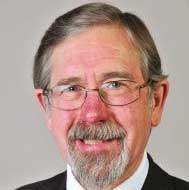Fender bends rules to reveal (sm)all
Chair of TfGM addresses transport seminar
The labels change but the struggle continues. The authority responsible for co-ordinating transport across Greater Manchester has been re-branded from Passenger Transport (GMPTA) to Integrated Transport (GMITA) to simple Transport (TfGM) in recent years. The man now at the helm of TfGM is Andrew Fender who addressed a transport seminar, sponsored by Greater Manchester Centre for Voluntary Organisation (GMCVO). Chatham House rules applied so will try to avoid contravening the Official Secrets Act in this account. Andrew is the Labour councillor for Old Moat (Withington) Manchester. He traced the journey from Greater Manchester Council (established in 1974) to Transport for Greater Manchester. In 1973 Andrew stood unsuccessfully for the Rusholme seat but was defeated by the Tories(!) Four years later he was elected to represent Hulme and Moss Side, on a platform opposing the upgrading of Princess Parkway to a motorway. By 1981 he was chair of the GMC Transport Committee. Early plans for a Pic-Vic Link between Piccadilly and Victoria stations fell victim to the economic downturn. A 2p concessionary fare survived until 1986 when the metropolitan county councils were abolished. The inadequacies of the local rail network and the north/south divide in the conurbation were addressed by a move to light rail. This resulted in the public transport “renaissance” of the 1990s culminating in the opening of Metrolink Phases 1 and 2. On heavy rail the building of the Windsor Link better connected Salford Crescent with Piccadilly.
The 2008 Congestion Charge Debate was lost but we still gained £1.5billion from the Greater Manchester Transport Fund – the largest such investment outside London. In 1982 Fender visited Karlsruhe, Germany to study their tram trains. 30 years later we are still waiting for the introduction of this alternative use for heavy rail routes in the UK. TfGM is showing renewed interest, with trials currently taking place in South Yorkshire. Campaigners should be vigilant that we do not lose more cycle carriage. Andrew also believes there is further transport potential in the Ship Canal but it is unlikely to include improved cycle access if Peel Holdings get their way.
Despite the ever-lengthening Quality Bus Corridors (QBCs) annual bus usage continues to decline from a
1974 peak of 400 million to 225 million in 2011. Innovation will be required to reverse this trend. Smart card technology (such as the London Oyster Card) could help but the multiple operators disagree on sharing the revenue. Stagecoach and Metrolink will soon be trialling a joint smart card. The current annual subsidy for concessionary fares and socially necessary but economically unviable routes stands at £100million. All parties on TfGM (including the Tories) support the re-regulation of buses but pragmatism is the order of the day. Metrolink is publicly owned but operates as a franchise, currently granted to RATP. Transport has to relate to economic and spatial policies but Fender sees opportunities in the new localism agenda. There is still some scope for intervening in the transport market, the new Salford Quays bus link was pump-primed by TfGM.
Some members of his audience expressed scepticism at the value of big projects but Andrew defended High Speed 2 as being good for the North West. Another questioned the need for so much travel. Fender noted the extra (car) journeys generated by parental school choice and permissive retail planning, particularly the construction of the Trafford Centre which he opposed. Cycling featured in the debate, our speaker noted the successful bid to the Local Sustainable Transport Fund. He was congratulated on supporting the principle of 20 mph speed limits in all residential areas, adopted recently by Manchester. He could only lead the other nine highway authorities (district councils) in that direction, nudged by the aspirations in the Local Transport Plan. There was a passing reference to the ban on cycle carriage on trams. A Traffordian complained that integration was not promoted at Sale Metrolink which offers 32 free car park spaces but no bike parking. On 3 May Salford elects a mayor and Manchester votes on the desirability of the same. If passed, Manchester’s mayoral election will take place in November. Fender is alarmed at the prospect, fearing elected mayors could threaten the cohesion of the TfGM. Sadly electing a Greater Manchester mayor is not currently on the agenda.


